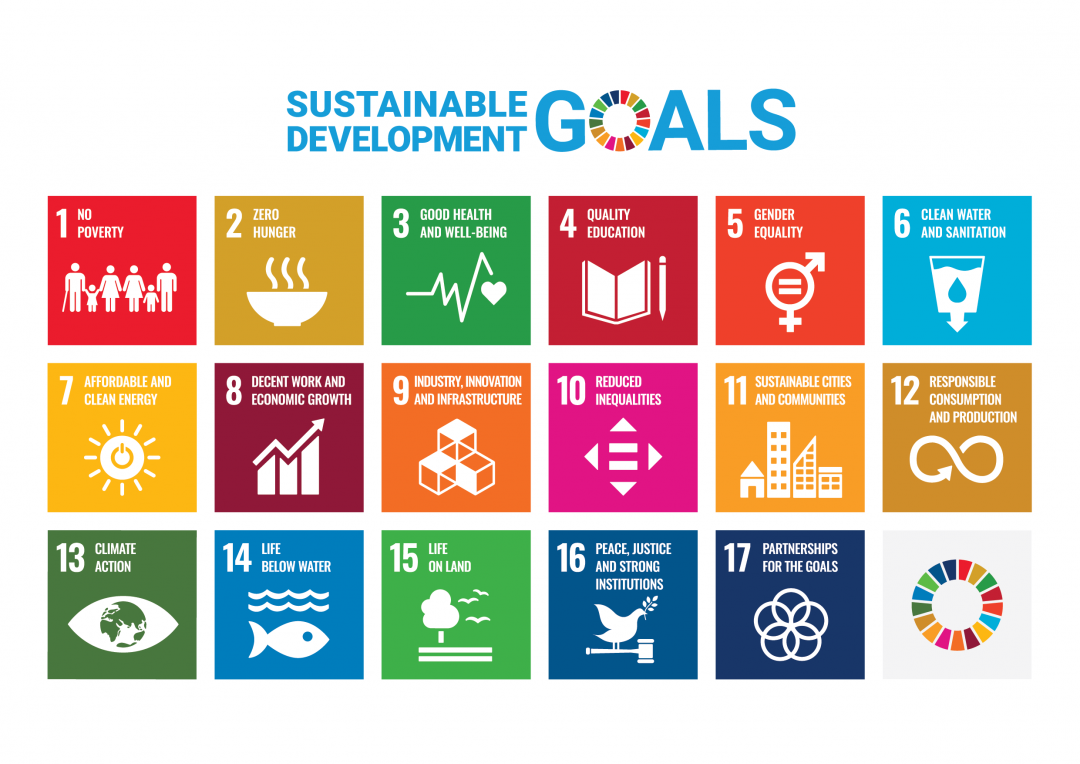Sustainable development for business and the SDGs
The United Nations Sustainable Development Goals (SDGs) are the blueprint for achieving a better and more sustainable future for all. Companies with inclusive business models have a major role to play in advancing the private sector’s efforts to contribute to the achievement of the SDGs. Adapting and integrating inclusive business models will help business take a major leap towards sustainable development.
What are the Sustainable Development Goals?
The seventeen SDGs are the heart of the 2030 Agenda for Sustainable Development, which was adopted by all United Nations member states in 2015. They address global challenges in developed and emerging countries that relate to poverty, inequality, climate, environmental degradation, prosperity, and peace and justice.
The SDGs explicitly call on businesses to apply their creativity and innovation to solve sustainable development challenges.
Why do the SDGs matter for companies?
Obviously, there is a clear business case for aligning business models with the SDGs. Below you will find five core reasons why.
- The SDGs reflect stakeholder expectations. Companies that align their priorities with the SDGs can strengthen engagement of customers, employees and other stakeholders. In 2018, the World Business Council for Sustainable Development (WBCSD), a global, CEO-led organization of leading businesses, conducted a survey among 250 of its member companies. 49 per cent of respondents confirmed that they perceived reputational gains and enhanced license to operate as a very important benefit of the SDGs. Only nine per cent considered this benefit as being not important at all.
- The SDGs reflect future policy direction. To achieve the SDGs by 2030, governments may introduce regulatory measures. By aligning their business models with the SDGs, companies stay ahead of the curve and avoid costly penalties like higher taxation.
- Investor focus on Environmental, Social, and Governance (ESG) Criteria will drive investments towards companies aligned with the SDGs. As the SDGs aim to redirect global public and private investment flows towards solving global challenges, companies that address the SDGs will have a competitive advantage. In 2020, the Global Impact Investor Network (GIIN)’s Annual Impact Investor Survey found that nearly three out of four respondents relied on the SDGs to shape their impact targets.
- The SDGs can serve as a roadmap to identify future business opportunities. Pursuing the SDGs can help companies unlock new market opportunities. According to a 2017 landmark report by the Business and Sustainable Development Commission, achieving the SDGs opens up about US$12 trillion of market opportunities in agriculture, cities, energy, and the health sector.
- Companies investing in the achievement of the SDGs support an enabling environment for business success. This includes the existence of rules-based markets, transparent financial systems, and non-corrupt and well-governed institutions. In this interview, Filippo Veglio, Managing Director of WBCSD, explains that “business cannot succeed in societies that fail” and that there is a need to reinvent capitalism.
What are businesses doing to advance the SDGs?
According to the mentioned WBCSD survey, 41 per cent of respondents have taken measures to ensure that the SDGs are integrated into their strategy.
Moreover, 280 companies worldwide have responded to UNDP’s Business Call to Action (BCtA) request to make commitments toward the SDGs. The initiative aims to help improve the lives of millions of people with low incomes through commercially-viable business ventures by engaging them not only as employees but also as consumers, producers, suppliers, distributors of goods and services that companies provide. BCtA member Tolaro, for example, connects Benin’s cashew farmers to export markets.
In 2021, the WBCSD also launched its Vision 2050, an ambitious framework for corporate action. It outlines nine transformative pathways for companies to make the current economic system more sustainable.
Read more about business platforms advancing sustainability in this issue of the online magazine CLUED-iN.

How are Inclusive Business and the SDGs aligned?
In a recent initiative by Business for Inclusive Growth, companies representing three million employees and US$ one trillion in revenue have pledged to address the “urgent need to mainstream Inclusive Business to expand and scale impact.” This is crucial to delivering on the SDGs, particularly SDG 1 (no poverty), SDG 5 (gender equality), SDG 8 (decent work and economic growth), and SDG 10 (reduced inequalities).
Inclusive Business can play a key role in achieving the SDGs. Companies with inclusive business models integrate underserved communities into their value chains as customers, suppliers, retailers, or distributors. Thereby they create income opportunities, supply affordable, high-quality products to meet basic needs, or enhance access to crucial infrastructure. This contributes to all the SDGs and enables sustainable economic growth.
Inclusive Business Company Empower Pragati, for example, provides skills training to youths from underserved communities in India. In addition, it cooperates with national and regional governments to develop the vocational training sector. As a profitable company, it actively contributes to SDGs 1 (no poverty), 4 (quality education), 5 (gender equality), and 17 (partnership for the goals).
What other examples of inclusive business companies contributing to the SDGs are there?
Here are some concrete examples of companies advancing the SDGs through Inclusive Business:
- LifeBank delivers essential medical supplies to health facilities in underserved areas in Nigeria and Kenya.
- Golden Sunland improves the livelihoods of smallholder farmers and reduces the carbon footprint of rice production in Singapore and Myanmar.
- Saraya saves lives through hand hygiene in Uganda.
- Joma sources Fairtrade coffee and supports locals in Laos.
- Kennemer increases smallholder farmers’ yields and incomes.
- Kamworks provides solar solutions to rural communities in Cambodia.
Our Inclusive Business Impact Stories present more inclusive business companies that work towards achieving the SDGs.
Do you want to learn more?
- BCtA Impact Lab: The Impact Lab supports businesses to visualise how operations, strategies and goals link and contribute to outcomes and impact related to the SDGs.
- SDG Business Hub: This hub managed by WBCSD gives you access to the latest developments on business and the SDGs. The hub also provides a variety of guides and further resources for companies.
- Vision 2050: In this framework, WBCSD offers comprehensive and ambitious guidance on how companies can drive change in their sustainability planning and business strategies.
- Growing Impact: This 2020 GIIN report analyses current trends in impact investing and presents several case studies of investors incorporating the SDGs into their strategies.
